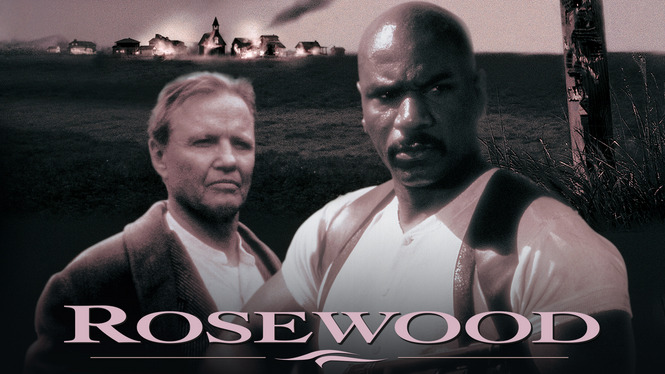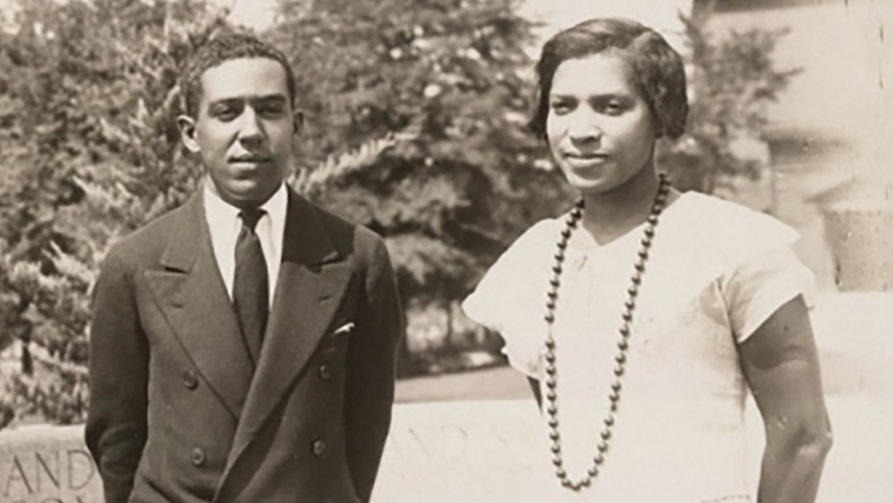Dred Scott, Plaintiff in error, v. John F. A. Sandford.
Supreme Court of the United States
60 U.S. 393; 15 L. Ed. 691
December, 1856 Term
It was an action of trespass vi et armis instituted in the Circuit Court by Scott against Sandford. Prior to the institution of the present suit, an action was brought by Scott for his freedom in the Circuit Court of St. Louis county, (State court,) where there was a verdict and judgment in his favor. On a writ of error to the Supreme Court of the State, the judgment below was reversed, and the case remanded to the Circuit Court, where it was continued to await the decision of the case now in question.
The declaration of Scott contained three counts: one, that Sandford had assaulted the plaintiff; one, that he had assaulted Harriet Scott, his wife; and one, that he had assaulted Eliza Scott and Lizzie Scott, his children.
Sandford appeared, and filed the following plea:
DRED SCOTT v. JOHN F. A. SANDFORD.
Plea to the Jurisdiction of the Court.
APRIL TERM, 1854.
And the said John F. A. Sandford, in his own proper person, comes and says that this court ought not to have or take further cognizance of the action aforesaid, because he says that said cause of action, and each and every one of them, (if any such have accrued to the said Dred Scott,) accrued to the said Dred Scott out of the jurisdiction of this court, and exclusively within the jurisdiction of the courts of the State of Missouri, for that, to wit: the said plaintiff, Dred Scott, is not a citizen of the State of Missouri, as alleged in his declaration, because he is a negro of African descent; his ancestors were of pure African blood, and were brought into this country and sold as negro slaves, and this the said Sandford is ready to verify. Wherefore, he prays judgment whether this court can or will take further cognizance of the action aforesaid.
JOHN F. A. SANDFORD.
To this plea there was a demurrer in the usual form, which was argued in April, 1854, when the court gave judgment that the demurrer should be sustained.
In May, 1854, the defendant, in pursuance of an agreement between counsel, and with the leave of the court, pleaded in bar of the action:
Not guilty.
That the plaintiff was a negro slave, the lawful property of the defendant, and, as such, the defendant gently laid his hands upon him, and thereby had only restrained him, as the defendant had a right to do.
That with respect to the wife and daughters of the plaintiff, in the second and third counts of the declaration mentioned, the defendant had, as to them, only acted in the same manner, and in virtue of the same legal right.
In the first of these pleas, the plaintiff joined issue; and to the second and third filed replications alleging that the defendant, of his own wrong and without the cause in his second and third pleas alleged, committed the trespasses.
The counsel then filed the following agreed statement of facts, viz:
In the year 1834, the plaintiff was a negro slave belonging to Dr. Emerson, who was a surgeon in the army of the United States. In that year, 1834, said Dr. Emerson took the plaintiff from the State of Missouri to the military post at Rock Island, in the State of Illinois, and held him there as a slave until the month of April or May, 1836. At the time last mentioned, said Dr. Emerson removed the plaintiff from said military post at Rock Island to the military post at Fort Snelling, situate on the west bank of the Mississippi river, in the Territory known as Upper Louisiana, acquired by the United States of France, and situate north of the latitude of thirty-six degrees thirty minutes north, and north of the State of Missouri. Said Dr. Emerson held the plaintiff in a slavery at said Fort Snelling, from said last-mentioned date until the year 1838.
In the year 1835, Harriet, who is named in the second count of the plaintiff’s declaration, was the negro slave of Major Taliaferro, who belonged to the army of the United States. In that year, 1835, said Major Taliaferro took said Harriet to said Fort Snelling, a military post, situated as hereinbefore stated, and kept her there as a slave until the year 1836, and then sold and delivered her as a slave at said Fort Snelling unto the said Dr. Emerson hereinbefore named. Said Dr. Emerson held said Harriet in slavery at said Fort Snelling until the year 1838.
In the year 1836, the plaintiff and said Harriet at said Fort Snelling, with the consent of said Dr. Emerson, who then claimed to be their master and owner, intermarried, and took each other for husband and wife. Eliza and Lizzie, named in the third count of the plaintiff’s declaration, are the fruit of that marriage. Eliza is about fourteen years old, and was born on board the steamboat Gipsey, north of the north line of the State of Missouri, and upon the river Mississippi. Lizzie is about seven years old, and was born in the State of Missouri, at the military post called Jefferson Barracks.
In the year 1838, said Dr. Emerson removed the plaintiff and said Harriet and their said daughter Eliza, from said Fort Snelling to the State of Missouri, where they have ever since resided.
Before the commencement of this suit, said Dr. Emerson sold and conveyed the plaintiff, said Harriet, Eliza, and Lizzie, to the defendant, as slaves, and the defendant has ever since claimed to hold them and each of them as slaves. At the times mentioned in the Plaintiff’s declaration, the defendant, claiming to be owner as aforesaid, laid his hands upon said plaintiff, Harriet, Eliza, and Lizzie, and imprisoned them, doing in this respect, however, no more than what he might lawfully do if they were of right his slaves at such times.
Further proof may be given on the trial for either party.
It is agreed that Dred Scott brought suit for his freedom in the Circuit Court of St. Louis county; that there was a verdict and judgment in his favor; that on a writ of error to the Supreme Court, the judgment below was reversed, and the same remanded to the Circuit Court, where it has been continued to await the decision of this case.
In May, 1854, the cause went before a jury, who found the following verdict, viz: “As to the first issue joined in this case, we of the jury find the defendant not guilty; and as to the issue secondly above joined, we of the jury find that before and at the time when, &c., in the first count mentioned, the said Dred Scott was a negro slave, the lawful property of the defendant; and as to the issue thirdly above joined, we, the jury, find that before and at the time when, &c., in the second and third counts mentioned, the said Harriet, wife of said Dred Scott, and Eliza and Lizzie, the daughters of the said Dred Scott, were negro slaves, the lawful property of the defendant.”
Whereupon, the court gave judgment for the defendant. After an ineffectual motion for a new trial, the plaintiff filed the following bill of exceptions.
On the trial of this cause by the jury, the plaintiff, to maintain the issues on his part, read to the jury the following agreed statement of facts, (see agreement above.) No further testimony was given to the jury by either party. Thereupon the plaintiff moved the court to give to the jury the following instruction, viz:
“That, upon the facts agreed to by the parties, they ought to find for the plaintiff. The court refused to give such instruction to the jury, and the plaintiff, to such refusal, then and there duly excepted.”
The court then gave the following instruction to the jury, on motion of the defendant:
“The jury are instructed, that upon the facts in this case, the law is with the defendant.” The plaintiff excepted to this instruction.
Upon these exceptions, the case came up to this court.
It was argued at December term, 1855, and ordered to be reargued at the present term.
The Verdict
The verdict was that Scott, or any slave, was not free by virtue of residence in a free state or territory, and since Scott was living in Missouri, his status must ultimately be determined in a court there. The verdict also stated that Negroes were not “citizens” as stated in the Constitution, and did not have the right to sue in any federal court. When it was decided that the Missouri Compromise was unconstitutional, it was on the grounds that slaves were property, and prohibiting slavery in free territories would violate a slave owner’s right to own property.
The Opinion
The question is simply this: Can a negro, whose ancestors were imported into this country and sold as slaves, become a member of the political community formed and brought into existence by the constitution of these United States and as such become entitled to all the rights, and privileges, immunities, guaranteed by that instrument to the citizen? . . .
The words “people of the United States” and “citizens” are synonymous terms, and mean the same thing. They both describe political body who, according to our republican institutions, form the sovereignty, and who hold the power and conduct the government through their representatives. They are what we familiarly call the “sovereign people, and every citizen is one of this people, and a constituent member of this sovereignty. The question before us is, whether the class of persons described in the plea in abatement compose a portion of this people, and are constituent members of this sovereignty? We think they are not, and that they are not included, and were not intended to be included, under the word “citizens” in the constitution, and can therefore claim none of the rights and privileges which that instrument provides for and secures to citizens of the United States. On the contrary, they were at that time considered as a subordinate and inferior class of beings, who had been subjugated by the dominant race, and, whether emancipated or not, yet remained subject to their authority, and had no rights or privileges………………
It is not the province of the court to decide upon the justice or injustice, the policy or impolicy, of these laws. The decision Of that question belonged to the political or law-making power; to those who formed the sovereignty and framed the constitution. The duty of the court is, to interpret the instrument they have framed, with the best lights we can obtain on the subject, and to administer it as we find it, according to its true intent and meaning when it was adopted
In discussing this question, we must not confound the rights of citizenship which a State may confer within its own limits, and and the rights of citizenship as member of the Union. It does not by any means follow, because he has all the rights and privileges of a citizen of a State, that he must be a citizen of. the United States. He may have all of the rights and privileges of the citizen of a State, and yet not be entitled to the rights and privileges of a citizen in any other State. For, previous to the option of the conshtution of the United States, every State had the undoubted right to confer on whomsoever it pleased the character of citizen, and to endow him with all its rights. But this character of course was confined to the boundaries of the State, and gave him no rights or privileges in other States beyond those secured to him by the laws of nations and the comity of States. Nor have the several States surrendered the power of conferring these rights and privileges by adopting the constitution of United States…
It is very clear, therefore, that no State can, by any act or law of its own, passed since the adoption of the constitution, introduce a new member into the political community created by the constitution of the United States. It cannot make him a member of this community by making him a member of its own. And for the same reason it cannot introduce any person, or description of persons, who were not intended to be embraced in this new political family, which the constitution brought into existence, but were intended to be excluded from it.
The question then arises, whether the provisions of the constitution, in relation to the personal rights and privileges to which the citizen of a State should be entitled, embraced the negro African race, at that time in this country, or who might afterwards be imported, who had then or should afterwards be made free in any State; and to put it in the power of a single State to make him a citizen of the United States, and endue him with the full rights of citizenship in every other State without consent? Does the constitution of the United States act upon him whenever he shall be made free under the laws of a State, and raised there to the rank of a citizen, and immediately clothe him with all the privileges of a citizen in every other State, and in its own courts?
The court thinks the affirmative of these propositions cannot be maintained. And if it cannot, the plaintiff in error could not be a citizen of the State of Missouri, within the meaning of the constitution of the United States, and, consequently, was not entitled to sue in its courts.
It is true, every person, and every class and description of persons, who were at the time of the adoption of the constitution recognized as citizens in the several States, be- came also citizens of this new political body; but none other; it was formed by them, and for them and their posterity, but for no one else. And the personal rights and privileges guaranteed to citizens of this new sovereignty were intended to embrace those only who were then members of the several State communities, or who should afterwards by birthright or otherwise become members, according to the provisions of the constitution and the principles on which it was founded…………………………………
In the opinion of the court the legislation and histories of the times, and the language used in the declaration of independence, show, that neither the class of persons who had been imported as slaves, nor their descendants, whether they had become free or not, were then acknowledged as a part of the people, nor intended to be included in the general words used in that memorable instrument………………………………
The government of the United States had no right to interfere for any other purpose but that protecting the rights of the owner, leaving it altogether with the several States to deal with this race, whether emancipated or not, as each State may think justice, humanity, and the interests and safety of society, require…
The act of Congress, upon which the plaintiff relies, declares that slavery and involuntary servitude, except as a punishment for crime, shall be forever prohibited in all that part of the territory ceded by France, under the name of Louisiana, which lies north of thirty-six degrees thirty minutes north latitude and not included within the limits of Missouri. And the difficulty which meets us at the threshold of this part of the inquiry is whether Congress was authorized to pass this law under any of the powers granted to it by the Constitution; for, if the authority is not given by that instrument, it is the duty of this Court to declare it void and inoperative and incapable of conferring freedom upon anyone who is held as a slave under the laws of any one of the states…
We do not mean . . . to question the power of Congress in this respect. The power to expand the territory of the United States by the admission of new states is plainly given; and in the construction of this power by all the departments of the government, it has been held to authorize the acquisition of territory, not fit for admission at the time, but to be admitted as soon as its population and situation would entitle it to admission. It is acquired to become a state and not to be held as a colony and governed by Congress with absolute Authority; and, as the propriety of admitting a new state is committed to the sound discretion of Congress, the power to acquire territory for that purpose, to be held by the United States until it is in a suitable condition to become a state upon an equal footing with the other states, must rest upon the same discretional. . .
But the power of Congress over the person or property of a citizen can never be a mere discretionary power under our Constitution and form of government. The powers of the government and the rights and privileges of the citizen are regulated and plainly defined by the Constitution itself………..
These powers, and others, in relation to rights of person, which it is not necessary here to enumerate, are, in express and positive terms, denied to the general government; and the rights of private property have been guarded with equal care. Thus the rights of property are united with the rights of person and placed on the same ground by the Fifth Amendment to the Constitution, which provides that no person shall be deprived of life, liberty, and property without due process of law. And an act of Congress which deprives a citizen of the United States of his liberty of property, without due process of law, merely because he came himself or brought his property into a particular territory of the United States, and who had committed no offense against the law, could hardly be dignified with the name of due process of law………………………….
It seems, however, to be supposed that there is a difference between property in a slave and other property and that different rules may be applied to it in expounding Constitution of the United States. And the laws and usages of nations, and the writings of eminent jurists upon the relation of master and slave and their mutual rights and duties, and the powers which governments may exercise over it, have been dwelt upon in the argument.
But, in considering the question before us, it must be borne in mind that there is no law of nations standing between the people of the United States and their government and interfering with their relation to each other. The powers of the government and the rights of the citizen under it are positive and practical regulations plainly written down. The people of the United States have delegated to it certain enumerated powers and forbidden it to exercise others. It has no power over the person of property of a citizen but what the citizens of the United States have granted. And no laws or usages of other nations, or reasoning of statesmen of jurists upon the relations of master and slave, can enlarge the powers of the government or take from the citizens the rights they have reserved. And if the Constitution recognizes the right of property of the master in a slave, and makes no distinction between that description of property and other property owned by a citizen, no tribunal, acting under the authority of the United States, whether it be legislative, executive, or judicial, has a right to draw such a distinction or deny to it the benefit of the provisions and guaranties which have been provided for the protection of private property against the encroachments of the government.
Now, as we have already said in an earlier part of this opinion, upon a different point, the right of property in a slave is distinctly and expressly affirmed in the Constitution. The right to traffic in it, like an ordinary article of merchandise and property, was guaranteed to the citizens of the United States, in every state that might desire it, for twenty years. And the government in express terms is pledged to protect it in all future time if the slave escapes from his owner. That is done in plain words–too plain to be misunderstood. And no word can be found in the Constitution which gives Congress a greater power over slave property or which entitles property of that kind to less protection than property of any other description. The only power conferred is the power coupled with the duty of guarding and protecting the owner in his rights.
Upon these considerations it is the opinion of the court that the act of Congress which prohibited a citizen from holding and owning property of this kind in the territory of the United States north of the line therein mentioned is not warranted by the Constitution and is therefore void; and that neither Dred Scott himself, nor any of his family, were made free by being carried into this territory; even if they had been carried there by the owner with the intention of becoming a permanent resident.








